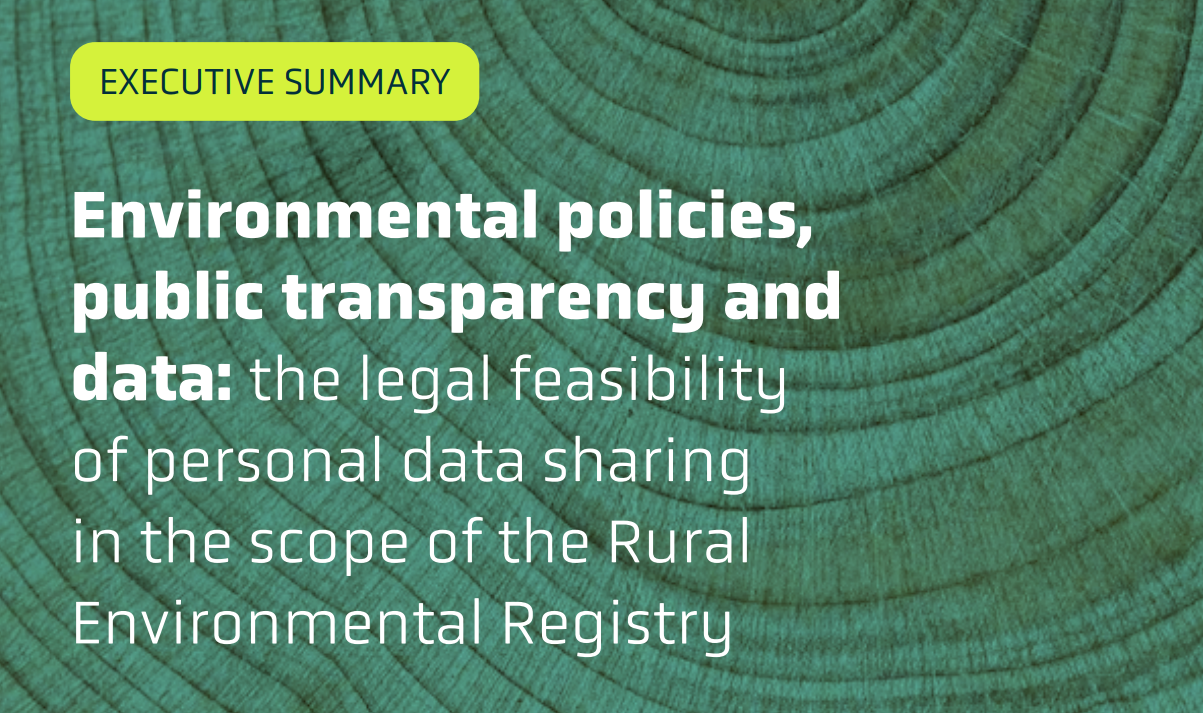| Nature and information: contesting political instrumentalization of the LGPD in environmental regulation | Asymmetries and Power
Environmental policies, public transparency, and data protection: the legal feasibility of sharing personal data within the scope of the Rural Environmental Registry

This report is the result of the project “Environment and Information: Contesting the Political Instrumentalization of the LGPD in Environmental Regulation,”, supported by the Instituto Clima e Sociedade and aimed to analyze decisions by public bodies that denied access to environmental information using the protection of personal data as a central argument.
The research focused on the analysis of decisions that prevent the sharing of personal data present in the Rural Environmental Registry (CAR) in response to requests for access to information during the year 2021. The study evaluated the CAR’s compliance with the General Law of Data Protection (LGPD) and opposition to the arguments used by public authorities to prevent the disclosure of information of public interest related to environmental regulation.
The report highlighted the asymmetry in the processing of personal data, where confidentiality is a rule for rural companies, while the beneficiaries of agrarian reform have their names exposed by the public administration. It was argued that CAR’s processing of personal data is not in accordance with national and internationally recognized legislation, to which Brazil is a signatory.
The main findings of the study were:
- The insufficient availability of data on landowners and the use of the LGPD as an argument to avoid sharing this information.
- Analysis of an information request process in which personal data of landowners in deforested areas was blocked on the grounds that there was no potential risk to the honor and image of these owners.
- Questioning about the interests behind the blockade and the impact on the diffuse and collective rights of the Brazilian population.
- Misinterpretations of Brazilian legislation that lead to the confidentiality of information, despite the LGPD and the Access to Information Law allowing the disclosure of personal data with legal protection.
Based on the findings, the report presents the following recommendations:
- Opening of the CAR database to identify owners related to deforestation alerts.
- Change in normative instructions to expand the list of CAR data that must be disclosed and avoid the logic of confidentiality regarding personal data.
- Training of public servants involved in analyzing requests for access to information related to environmental issues to ensure adequate treatment and data security.
The study also proposed models of legal interpretation that combined the right to information with the protection of personal data in environmental policies. Examples of existing practices for active and passive transparency of CAR data were also presented.
To find out more, access the full report in Portuguese.
Also, check out the executive summary in English.
DataPrivacyBr Research | Content under licensing CC BY-SA 4.0
